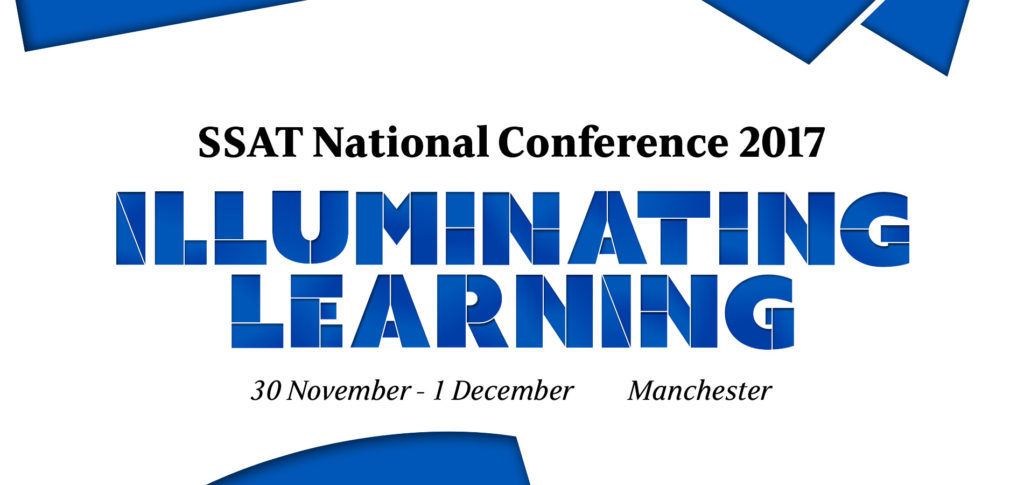
 ‘What does excellence mean as a school leader?’ Getting up at 5am to walk to school through the snow, for one thing, says SSAT National Conference main stage speaker Katrina Morley
‘What does excellence mean as a school leader?’ Getting up at 5am to walk to school through the snow, for one thing, says SSAT National Conference main stage speaker Katrina Morley
Katrina Morley, chief executive of Tees Valley Education, describes her approach to moving toward excellence in education: ‘I absolutely accept the importance of the structural and quantitative factors: policy, procedures and systems. This gives you a solid foundation and is the basis for any good organisation, working in an aligned manner with reasonable efficiency.
‘But to offer excellence, it’s not about structure, but people. Hearts and minds. This is referred to as soft skills – but it is most certainly not a soft option. You have to challenge your own perceptions as well as others’.
‘In my first year as a head, the winter of 2010, here in the North we had snow from November to February. I was phoned on a Sunday evening by the cluster representative, who declared, “All our schools are closing.” I said, certainly not. I got up at 5am, and walked to school. The teachers and I dug ourselves into the school, hired a JCB and opened for the week.
‘By the Thursday, some of the staff would have killed me. One of the teachers had a text message from a teacher in another of our local cluster schools saying they were meeting at Costa Coffee and would he and colleagues like to join them? I pointed out it was not acceptable that a colleague could do that when they were “not able” to get into school.
‘At that exact point, one of our children came into school with his three-year-old brother, both very cold and hungry. They had spent the night on a mattress on the floor with just one quilt between them while their mother had been partying. I said to the staff, “we have work to do, ladies and gents. Closing the school is not an option”.’
‘We have work to do, ladies and gents. Closing the school is not an option’
Lying behind this no-excuse approach is a rationale and a style of school leadership. ‘Only if you reach out to hearts and minds can you attain the bigger purpose than any one person could do on their own. You have to make the investment in time, with individuals and groups. It’s an emotional investment, giving you the integral authority that comes not from your position but from your actions; honesty of dialogue.’
Serve the children by serving the staff
‘We are paid to serve the children, but we can only do that if I serve the staff too. This means having the courage of our convictions and finding the opportunities to overcome difficulties and to improve.’
The MAT invests in specific leadership development including coaching and mentoring, and currently employs a leadership coach who also works with the NHS nationally – deliberately chosen from outside education. ‘She comes in every term and helps us develop a shared language of leadership for the Trust. The heads and deputies all get individual coaching as well.’
‘I encourage the senior leadership team to come and discuss anything they think is not working. The goal never changes, though the route can and does.
‘Colleagues have got used to coming into my office at any time, knowing that I’ll listen to their ideas. We share problems, and then we’re all part of the answer. I ask lots of questions: where is this from? How is this? Why isn’t this working?, etc. Now, they come in with packs of information for me to pre-empt those questions! One colleague referred to the scene in Mary Poppins where the bemused father says “how did I just agree to that?” – she explained, “that’s how we all feel on leaving your office. We go in with one question, and come out with a whole set of different things to do!”’
Recently, Katrina Morley recounts, two colleagues chose to car-share with her on a journey, ‘which was unusual as my driving is well known…. They wanted to check out their idea of improving the school’s clubs by using both the music budget and the PE one. They hijacked my time on behalf of the kids, which I think is fantastic.’
‘They hijacked my time on behalf of the kids, which I think is fantastic’
So it’s clear that there are high levels of trust throughout the MAT senior leadership teams. But building that trust, Katrina Morley notes, ‘takes time – and a professional attitude. You have to be open to listening, but very clear on who will help, and how and why. Ultimately, if it will not have a positive impact on the life chances of our children, we ought not to be doing it.
‘I’m fiercely proud to call myself a teacher: I will forever be a teacher. It can be very hard. But teachers are the unsung heroes of our nation. We play a genuine role in society. The question behind everything we do is, “is this really the very best we can offer our children?”’
Katrina Morley is speaking on the main stage at the SSAT National Conference on Thursday morning. Read more in the NC17 blog series:
- The Chartered College of Teaching: on the cusp of change for the profession
- How a frustrated teacher became an expert in educational psychology
- Courageous leadership and the school curriculum
- How breadmaking can illuminate learning
- What has Hillsborough to do with school leadership?
Book your place at SSAT National Conference 2017: Illumination learning
